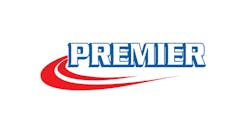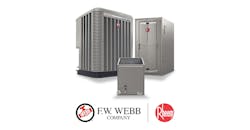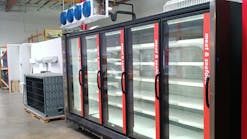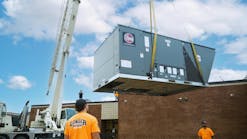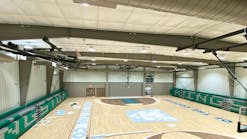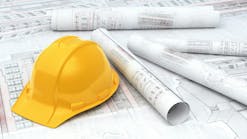It seems like every day we wake up to find that another natural disaster or emergency has wreaked havoc on cities, businesses, and countless lives. It’s enough to keep business owners, building managers, and HVAC contractors up at night, wondering if their facilities could survive such a situation.
As an HVAC mechanical contractor, how would you respond if a natural disaster hit your region, and caused damage to customers’ properties?
It’s no secret that having a disaster recovery plan can make the difference between getting back up and running after a catastrophe and losing a business permanently. Some business administrators probably have plans in place for evacuation, communication with employees and customers, power supply and data access. But there is an equally important aspect of emergency planning that many customers fail to consider: is your HVAC firm prepared for disasters? And as a contractor, are you able to respond when customers need you perhaps more than ever before?
Resources for Developing a Disaster Plan
If you need assistance developing or improving your own disaster recovery plan, these resources can help:
• Disaster Recovery article in the New York Times’ Small Business Guide: bit.ly/NYTDRguide
• The Ready Rating service from the American Red Cross: readyrating.org
• Facilities management industry meetings and conferences, such as the International Facility Management Association (IFMA) and the Building Owners and Managers Association (BOMA).
Evaluate Your Disaster Plan
How can you be sure your HVAC mechanical contracting firm is prepared to deal with a disaster situation? Scott Berger, President of Arista Air Conditioning— a provider of world-class HVAC support to premier tri-state corporations — recommends that customers ask each of their service providers for specific details about their disaster recovery plans.
“Customers need to ask the right questions, and know the kind of responses to expect from the most qualified companies,” Berger says. “If the unthinkable happens, customers will want to know how to communicate with everyone who services their mission-critical systems, and that they’re set up to get them back up and running as quickly as possible.”
Communicating with Clients, Employees
Service providers must have both the technology and the methodology in place to be able to locate and communicate with employees in an emergency.
“As a service company, Arista has as many as two-thirds of our staff in the field at a given time,” Berger says, “so we’ve developed phone chains and call-in systems, so that each employee knows what to do.”
Phone systems should be hosted off-site to prevent disruption in a local emergency. Redundancy for Internet access and phones should be in place. For example, if a provider has T1 lines, cable modems, and wireless communication, ideally hosted in different physical locations, service will still be available even if one access provider goes down.
“Arista has triple-redundancy in place for phone and internet access,” Berger explains.
Customers of HVAC firms and other service providers should have multiple ways to contact those service providers in an emergency situation, including phone numbers, email addresses, and social media contact information.
Can You Ensure Access to Trucks and Equipment?
HVAC contractors should maintain multiple storage facilities for trucks and equipment, and should have relationships with several supply houses in different locations for parts and supplies. Berger says, Arista has access to both, even outside of normal business hours.
Will You Have Access to Customer Equipment and Maintenance Records?
To access the information vital to servicing and repairing mechanical systems, the contractor needs both power and reliable access to computerized data. Generators need to be installed to provide emergency power. Data needs to be backed up and stored remotely, using either an online cloud system or using tapes or drives at a secondary location. This data should be accessible via wireless devices such as smart phones and tablet computers.
Essential: A Logistical Plan for Managing Work Requests
A good disaster plan includes training employees on what to do when an emergency arises. Employees should know where to go and whom to contact. It’s imperative that they plan alternate routes to get where they need to be. They also need protocols to follow regarding how to prioritize service requests and how to communicate expected response times.
Your plan should include points of contact within your city for important information, including road closures, power availability, and access to affected areas. Protocols for coordinating with law enforcement, fire officials and emergency responders, utility companies and other agencies can greatly improve a contractor’s response times and ability to get customers back in business faster.
Real Life Experiences
This question doesn’t have such a cut and dried answer. Berger’s advice is to show your customers evidence of experience, smart preparation, and good decision making.
“Customers want to know that their service provider has the expertise to foresee the likely consequences of an emergency and the ability to plan ahead,” Berger advises.
“For example, during the New York City blackout in August 2003, we knew that a surge when electricity is restored could cause thermostat and compressor failures,” Berger remembers. “We also knew from experience that power would be restored in stages, and where it was likely to come back first. So, we outfitted trucks with the parts they would need, and staged them at strategic locations throughout the city to be ready to respond immediately once the power came back on.”
However, not every situation can be planned for. On September 11, 2001 the entire city was thrown into chaos on a scale never before seen or even imagined. According to Berger, in a situation like this your contractor’s employees need the critical thinking skills to come up with solutions on the fly, and the willingness to do what is necessary to get the job done.
“In the aftermath of the September 11th attacks,” Berger recalls, “large areas of lower Manhattan were inaccessible, and reliable information was hard to come by. Gaining access to our clients’ buildings took ingenuity and perseverance. We tapped all our sources and shared information about road closures and entry points. When we heard that a permit would be required for access to the area, and that it would require the company owner’s signature, I hopped in a truck and we immediately made our way to the access point so that we could get our crews in as soon as we possibly could.”
